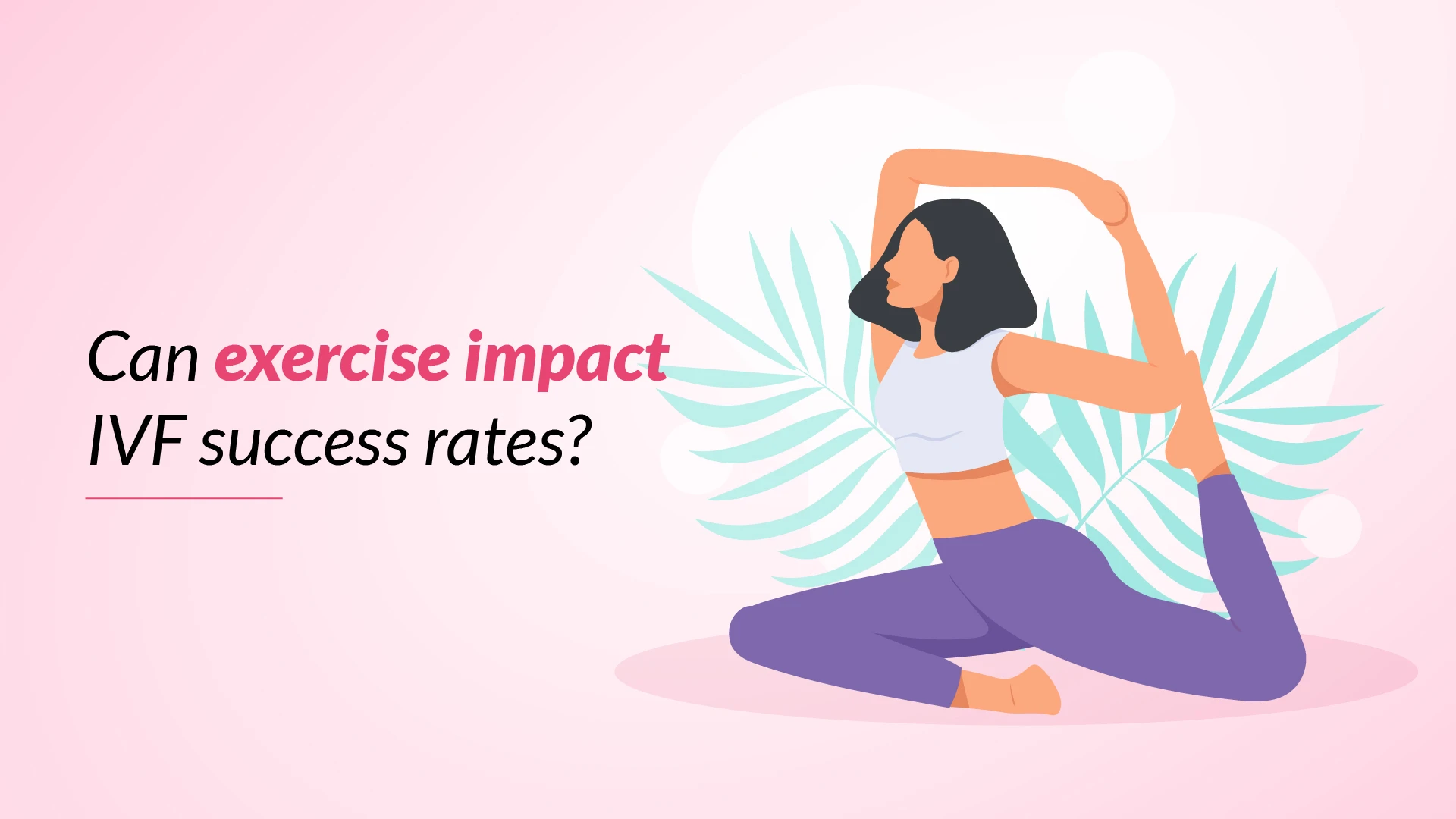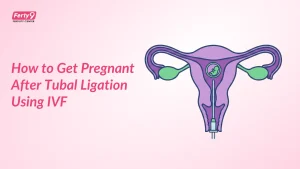In Vitro Fertilisation (IVF) is a complex and emotionally demanding process, and couples undergoing this treatment seek ways to improve their chances of success. One factor that has gained attention in recent years is the role of exercise in enhancing IVF outcomes. While the relationship between exercise and fertility has been debated, increasing research suggests that regular physical activity can positively impact IVF success rates. Let’s explore the science behind exercise and fertility, the potential benefits of exercise for those undergoing IVF treatment, and the recommended types of exercise during this journey.
Also read: How Yoga Can Improve IVF Success Rates
What is the Science Behind Exercise and Fertility?
The connection between exercise and fertility is multifaceted and involves various physiological mechanisms. Regular physical activity influences hormonal balance, weight management, blood flow, stress levels, mental health, immune function, and sleep quality – all of these can improve fertility and IVF outcomes.
Exercise can help regulate hormones like estrogen, progesterone, and testosterone, which are crucial in menstrual cycles and fertility. Additionally, maintaining a healthy body weight through exercise can optimise reproductive function and increase the chances of successful implantation during IVF.
How Exercise Can Help in IVF Success Rates
Hormone Regulation
Exercise has been found to influence hormone levels, which are essential for fertility and successful IVF outcomes. Regular physical activity can regulate hormones like estrogen, progesterone, and testosterone, which play crucial roles in the menstrual cycle and ovulation. By maintaining a balanced hormonal profile, exercise may increase the possibilities of successful fertilisation and implantation during IVF treatment.
Related read: Role of Hormones in Fertility
Weight Management
Obesity and being overweight have been linked to decreased fertility and lower IVF success rates. Exercise, combined with a healthy diet, can help individuals achieve and maintain a healthy body weight, improving ovulation, egg quality, and the chances of successful implantation during IVF treatment.
Improved Blood Flow
Regular exercise promotes better blood circulation. Increased blood circulation to the reproductive system can improve oxygenation and nutrient delivery, potentially enhancing egg quality and supporting a healthy uterine environment for implantation during IVF.
Stress Reduction
The complex journey of the IVF process can lead to increased stress levels. Exercise helps lower stress and anxiety by releasing endorphins, which are natural mood-boosting chemicals. Lower stress levels can improve overall wellness and increase the chances of successful IVF treatment.
Also read: The Role of Stress in Fertility and IVF Outcomes
Improved Mental Health
In addition to diminishing stress, exercise has been associated with a positive mindset and improved mental health. Engaging in physical activity can boost self-confidence, reduce symptoms of anxiety and depression, and encourage a sense of overall well-being. A positive mental state can be beneficial during the IVF journey, as it helps individuals cope better with the emotional challenges and improve treatment outcomes.
Enhanced Immune Function
Regular exercise has been associated with improved immune function, which is essential for reproductive health and successful IVF outcomes. A strong immune system can protect against infections and inflammation, negatively impacting fertility and the implantation process during IVF treatment.
Better Sleep Quality
Regular workout plays a crucial role in improving sleep quality, which is beneficial for overall health and well-being. Adequate sleep is essential for regulating hormones, reducing stress levels, and supporting the body’s natural healing processes, all of which can contribute to improved fertility and IVF success rates.
Support for a Healthy Lifestyle
Regular exercise can promote a healthier lifestyle overall, boosting fertility and improving IVF outcomes. Exercise can encourage better dietary choices, reduce harmful habits like smoking or excessive alcohol drinking, and foster a more positive mindset towards health and well-being.
Related Read: Why Quitting Tobacco is Essential for Male Infertility
Types of Exercise for Those Undergoing IVF
While doctors generally recommend exercise for individuals undergoing IVF therapy, it is essential to choose the suitable types of exercise and adjust the intensity and duration based on individual circumstances and the stage of the IVF process.
Brisk Walking
Brisk walking is a low-impact exercise you can easily incorporate into your daily routines. It can help improve cardiovascular health, decrease stress, and promote overall well-being without putting excessive strain on the body. Aim for at least 30 to 60 minutes of brisk walking most days of the week, adjusting the duration and intensity according to your fitness level and comfort.
Flexibility and Stretching Exercises
Gentle stretching and bending exercises can help improve circulation, reduce muscle tension, and promote relaxation. These exercises can be particularly beneficial during the IVF process, as they can help alleviate stress and discomfort associated with hormonal treatments and procedures.
Pilates
This low-impact exercise mainly focuses on strengthening the core muscles, improving posture, and promoting overall body awareness. Many women find Pilates to be a gentle and effective form of exercise during IVF treatment, as it can help decrease stress and improve overall well-being without excessive physical strain.
Gentle Yoga
Gentle yoga practices like Hatha or Restorative yoga can benefit those undergoing IVF treatment. These practices combine gentle stretching, breathing exercises, yoga, and meditation, which can help diminish stress, improve circulation, and promote relaxation. However, avoiding hot yoga or advanced poses that may be too strenuous during this time is essential.
Related read: Yoga to Get Pregnant: What to Expect
Resistance Band Exercises
Resistance band exercises can safely and effectively incorporate strength training into your exercise routine during IVF treatment. These activities can help build and maintain muscle strength without needing heavy weights or high-impact movements, which may be contraindicated during certain stages of the IVF process.
Find Hope and Solutions for Female Infertility and Male Infertility — Explore Our Comprehensive Services
ICSI Treatment
PICSI Treatment
Fertility Preservation Service
Blastocyst Culture & Transfer Treatment
Conclusion
The relationship between exercise and IVF success rates is a complex and multifaceted topic, but an increasing body of research suggests that regular physical activity can positively impact fertility and IVF outcomes. Exercise can increase the chances of successful IVF treatment by regulating hormones, managing weight, improving blood flow, reducing stress, enhancing mental health, boosting immune function, and promoting better sleep quality.
However, it is crucial to consult with your doctor and fertility specialist to determine the appropriate types and intensity of exercise during your IVF journey. Every individual’s circumstances are unique, and it is essential to tailor your exercise schedule to your specific needs and the stage of the IVF process.




























